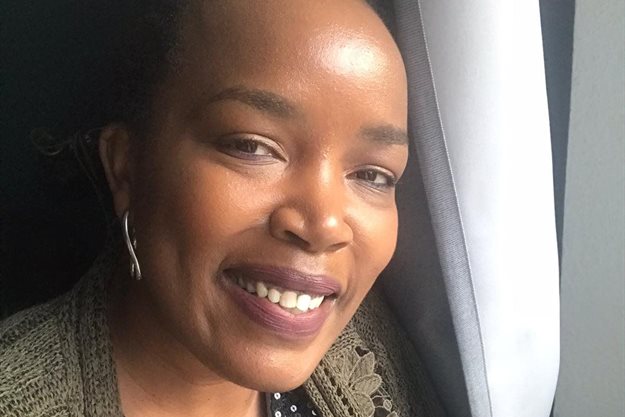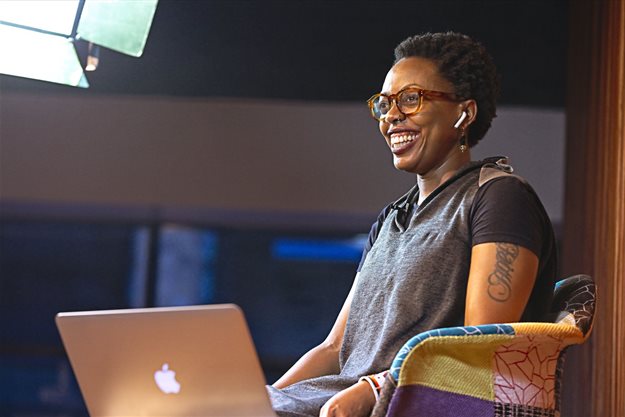On 12 February 2021, African and international podcasters and podcast enthusiasts alike celebrated #AfricaPodcastDay by participating in the inaugural Africa Podfest.
The 2021 Africa Podfest virtual gathering celebrated and appreciated the podcasting talent from across Africa. The virtual gathering saw more than 269 people from across the globe logged in and participating in the day’s events, while over 640 people streamed the festival over YouTube. The event also reached over 1,1m people on social media. The festival was attended by people from across the globe.

African podcasting is truly relevant to the rest of the world. These are the countries that the festival attendees came from.
The festival was co-hosted virtually by Africa Podfest co-directors Melissa Mbugua and Josephine Karianjahi. Mbugua was based at Baraza Media Lab in Nairobi, Kenya and Karianjahi in Düsseldorf, Germany and streamed via YouTube - a first for the continent’s podcasting industry. This year’s festival was aptly themed, 'We are proud to be here!'
Karianjahi expressed pride in how the day was created for Africans, by Africans. “The whole day was an extended masterclass for and by Africans in podcasting. Podcasting is often isolated and can be lonely, and confusing at times, but seeing so many podcasters and podcaster supporters connecting and taking notes together, felt like a true gathering."

Africa Podfest co-director Josephine Karianjahi co-hosts the festival live from Düsseldorf, Germany.
The event was also strengthened by the partnerships that supported the Podfest on the day. Baraza Media Lab provided the venue in Nairobi, Kenya while SemaBox, Hindenburg Systems, in_Motion Digital Grant (British Council & Prince Claus Fund), Tinzwe Media and Bizcommunity also brought the festival to life through their specialised involvement.
The #AfricaPodcastDay and Africa Podfest were celebrated in three parts. Two sections were dedicated to celebrating #AfricaPodcastDay through community events at the beginning and end of the day, separated by a four-hour Africa Podfest offering.
A variety of hosts from various countries around the world were featured, and shared their insights and knowledge together with speakers who provided valuable and tangible tips, which can be applied in the world of podcasting. The community events provided insights into how podcasters, journalists and storytellers are growing the continent’s podcasting industry.
Fellow co-director Mbugua’s festival highlights were the community events. “A highlight for me was experiencing the depth and expertise of African podcasters who hosted the community events and who spoke on the panel session. African podcasters are leaders and are ready to build the future audio industry, it's only a matter of time and consistent investment in community, capacity and infrastructure of the industry. The world should watch this space!”

Africa Podfest co-director Melissa Mbugua co-hosts the festival live from Baraza Media Lab in Nairobi, Kenya. | Photo credit: Marcus Olang
The festival even saw the launch of a collaborative, multinational and multilingual podcast. The Euronews original podcast, 'Cry Like a Boy', bridges together different languages, culture, countries (Lesotho, Senegal, Burundi, Liberia, South Africa, France, Guinea) while telling the story of toxic masculinity, men challenging universal stereotypes and fighting for gender equality. Appreciating the lessons that attendees learnt within the workshop, Karianjahi added. “From the reflections of team 'Cry Like a Boy', attendees learned the value of choosing and connecting with other Africans and choosing your team wisely, especially when you cannot see each other face-to-face even more so within a pandemic era.”
Attendees also enjoyed another podcast launch out of South Africa called, 'This is Africa' produced by the Children's Radio Foundation’s Radio Workshop, which focuses on the LGBTQI+ community and issues. The festival also included independent podcast producers representing disability awareness on hearing loss in Nigeria, podcasting trends in Angola, which was presented in Portuguese and a live comedy podcast recording from South Africa.
Mbugua added that attendees walked away with skills and a 360 view of the African podcasting arena. “Attendees learned the behaviour and preferences of African podcast audiences, the drivers that make pioneer podcasters in Africa successful and the opportunities within African podcasting which are on the horizon,” said Melissa. “They also learned technical skills: editing, recording, intellectual property guidelines and working collaboratively.”
The four-hour Africa Podfest featured panel conversations, a workshop about the forgotten voices within the African storytelling landscape, the development of African podcasting, how to produce a good podcast and how to record good audio.
Karianjahi added how interesting it was to find out more about the work that goes on behind the scenes to bring African podcasts to life. “A highlight for me was discovering just how many African podcasters share the experience of stepping out of their comfort zone to make good tape. From wardrobes and under blankets, to the value of awkward silences during interviews, to being able to capture the audio they can start to edit, to the ups and downs of recording guest interviews remotely and to applying broad skills into making podcasts.”
African and global podcasters alike can continue to enjoy the festival proceedings online and join the journey of Africa Podfest throughout the year by subscribing to the monthly newsletter and following the festival on social media platforms. “This is the beginning of an exciting journey for the African podcasting community. Africa Podfest plans to expand its original research to surface the opportunities for African podcasts to grow,” said Mbugua. “We will continue to grow the virtual space for community connection and plan to be active year-round, and mark your calendars for Africa Podcast Day and Africa Podcast Festival 2022!”
Africa Podfest is an annual event that brings together podcast pioneers from around the continent.
Podcasters can also look forward to seeing Karianjahi and Mbugua speak on the global stage for Podfest Global Summit taking place from 1 to 5 March.
In case you missed it, watch the virtual festival here:






































